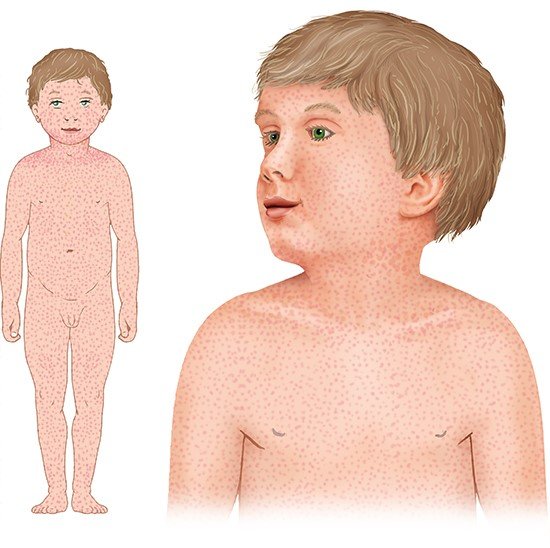There is an effective and safe vaccine to prevent rubella infections. It is recommended for all children – and all women of childbearing age who haven’t yet had the rubella vaccine, or aren't sure if they have. The pregnancy check-ups include a test to see whether the woman is immune to (protected against) rubella. But she isn't allowed to be given the rubella vaccine during pregnancy.
People who are regularly in contact with pregnant women should have the vaccine too – as well as those who work in community facilities such as daycare centers, schools, hospitals or further education facilities.
The rubella vaccine is given together with the measles and mumps vaccines in a combined vaccine (the MMR vaccine), or additionally together with the chickenpox vaccine (the MMRV vaccine). You can’t get a rubella vaccine on its own in Germany.
The first dose of the vaccine is given at the age of 11 months. A second dose is given at the age of 15 months. Children who go to a daycare center before that can already be vaccinated from the age of 9 months.
After having the vaccine, most people are generally protected against rubella for the rest of their lives. People who are vaccinated only get rubella very rarely. This usually happens when someone has only had one dose of the vaccine.
It is important that people have the rubella vaccine in order to stop the disease from spreading. If most of the population has been vaccinated, that also protects people who can’t have the vaccine, such as pregnant women. This is known as herd immunity or the herd effect. For herd immunity to be achieved, as many people as possible have to have the vaccination.


